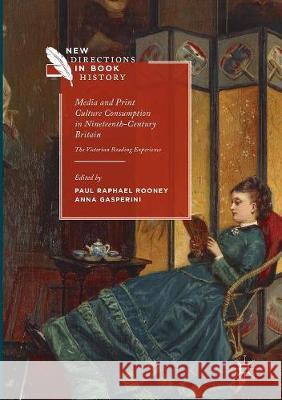Media and Print Culture Consumption in Nineteenth-Century Britain: The Victorian Reading Experience » książka
topmenu
Media and Print Culture Consumption in Nineteenth-Century Britain: The Victorian Reading Experience
ISBN-13: 9781349954599 / Angielski / Miękka / 2018 / 241 str.
Kategorie:
Kategorie BISAC:
Wydawca:
Palgrave MacMillan
Seria wydawnicza:
Język:
Angielski
ISBN-13:
9781349954599
Rok wydania:
2018
Wydanie:
Softcover Repri
Ilość stron:
241
Waga:
0.31 kg
Wymiary:
21.01 x 14.81 x 1.37
Oprawa:
Miękka
Wolumenów:
01
Dodatkowe informacje:
Bibliografia
Wydanie ilustrowane
Wydanie ilustrowane











